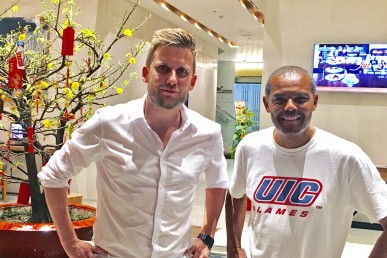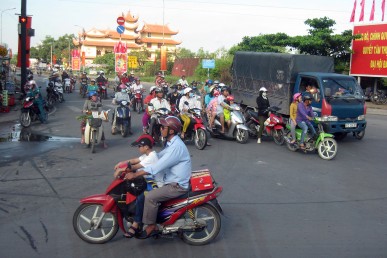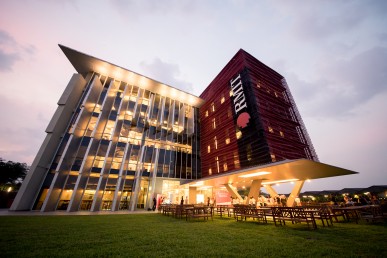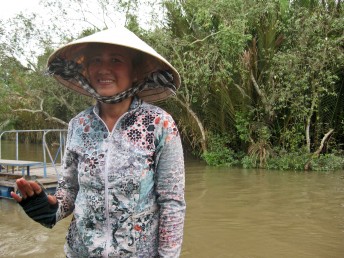Exchange program expands Asian partnerships
It’s not every day that students get a chance to travel to culturally rich Southeast Asia. Experiencing what life is like halfway around the world has always been a coveted learning opportunity.
Students in the College of Business Administration at the University of Illinois at Chicago now have the option of traveling to Vietnam, which was added last year to the list of more than 40 study abroad countries by the UIC Exchange Program.
The Vietnam opportunity, available to business students during the summer semester, is at RMIT University Vietnam, part of the Melbourne-based Royal Melbourne Institute of Technology. Students live and study in exciting Ho Chi Minh City (formerly Saigon), where the business curriculum includes courses in economics, finance, tourism and hospitality management. A second site in Hanoi will be open in the future.
The UIC Exchange Program is managed by UIC’s office of international affairs, which works with colleges and departments to set up exchange programs that send students to a foreign institution and bring international students to UIC. Students can study abroad for a summer, a semester, or a full academic year.
“We guide participants and units through the process,” says Nora Bonnin, senior director of the international affairs office. “The goal is to organize a productive and safe activity, and to protect participants and the institution.”
Students pay only UIC tuition, plus accommodations and travel. There are no program fees, and all financial aid and scholarships apply to the exchange.
The exchanges originate with faculty, Bonnin said, and are approved by their departments or colleges. Arrangements are handled by the office.
“We want them [students] focused on the academic experience and avoiding distractions,” she said.

Jogvan Klein, (left) director, international, RMIT University Vietnam, discussed the partnership with Jeffron Boynes, (right) associate director, UIC, in Ho Chi Minh City| Source: RMIT Vietnam
Jogvan Klein, international director for RMIT University Vietnam, said beyond the networks and friendships created with like-minded students from around the globe, the exchange experience provides another layer of perspectives on studies and life in general.
“The ability to view problems and issues from different perspectives is so valuable — and sought after,” Klein said. “We also see that students who have left their own country to study overseas all of a sudden get a new perspective on what their own opportunities are — their potential — and will be better equipped to pursue them. Students will be more open to further studies; they will be more mobile in their careers; and generally be better equipped for professional life than their peers who stayed home.”
Besides coursework, students get industry exposure, which can help connect them with companies in Ho Chi Minh City, like Intel and Samsung, Klein said. Students also gain practical experience on how business is done in Asia, including up-and-coming countries like China, Singapore, Korea, Japan and Taiwan.
Bonnin said exchanges are much more than students going abroad, taking classes with locals, living with them, studying and socializing with them.
“The experience begins at the academic level, but it’s embedded in an entirely new cultural universe,” she said. “That deep cultural immersion is part of the academic experience.”
Details of the program are online or contact Malikha Daniels, exchange programs coordinator, (312) 996-5455, daniel10@uic.edu



